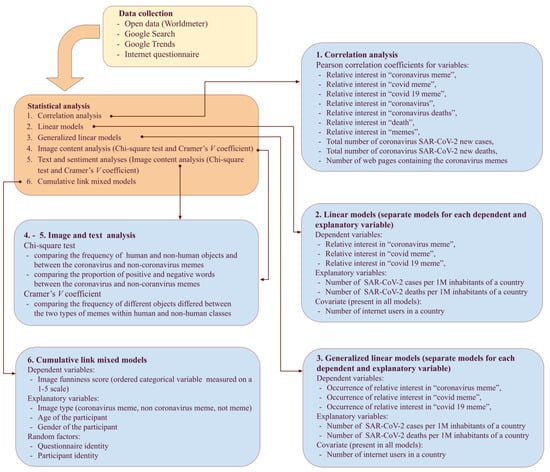Is it sufficient for companies to create AI without considering its ethical implications? Can the technology industry avoid the complex discussions surrounding morality and bias inherent in AI systems? Does the software development field have a responsibility to ensure that their creations are ethically sound? These thought-provoking questions highlight the importance of integrating ethical considerations into AI technology in software development.
According to research by McKinsey & Company, ethical issues in AI include bias, lack of transparency, misuse of personal data, and job loss due to automation. Furthermore, a study by the AI Now Institute at New York University underscores these pressing concerns, labeling them as an emerging crisis in the industry. Given these circumstances, it is imperative to devise an actionable blueprint in the USA to address these concerns and provide a more ethical approach to AI development.
In this article, you will learn about the companies that are leading the charge in implementing ethical guidelines in their AI practices. The range of approaches these companies take, the challenges they face, and the strategies they use to overcome these obstacles will be discussed at length. Moreover, it will shed light on how these companies navigate the balance between the advancements in AI technology and the moral and ethical boundaries that shape our society.
The landscape of ethical AI is complex and rapidly evolving. As such, we will also delve into the broader discourse surrounding this topic, including the role of regulatory bodies, changes in policy, and influential thought-leaders driving this space. By the end of the article, you will have a comprehensive understanding of how these issues impact AI in the software development industry and the pathways being created to address them.

Definitions and Concepts Behind Ethical AI in Software Development
Ethical AI refers to the concept of developing artificial intelligence responsibly, ensuring that the technology is used for good, respects human rights, and has proper fail-safes in place to prevent misuse.
Software Development is the process of designing, programming, testing, and maintaining software. When AI is a part of this, it’s integral that ethics considerations are built into each step of the process.
Ethical Guidelines in this context are predefined sets of rules and principles that companies follow to ensure that their software, especially AI applications, are ethical, fair, and responsible. These guidelines can come from professional bodies, legislation, or even developed within the company itself.
Some Companies Adhering to Ethical Guidelines refers to those organizations that strictly implement these ethical standards in their AI software development process, ensuring that the output is not harmful, biased, or infringing on the rights of others.
Unmasking the AI Ethical Landscape: How Companies are Implementing Guidelines in Software Development
Transparency Drives Trust in AI
Companies are increasingly placing essential importance on incorporating ethical AI practices into their operations. For instance, IBM’s principles of Trust and Transparency for AI applications set a high standard. The company is committed to clear communication about when and where AI is being used. This initiative not only enhances IBM’s credibility but also encourages other businesses to adopt transparent and ethical AI practices, thus fostering an industry-wide trust in AI.
Microsoft, another tech titan, is breaking the code of ethical AI with its initiative, AI for Good. This program is focused on employing the capabilities of AI to address societal challenges. Their principles revolve around fairness, reliability, privacy and security, transparency and accountability, thereby upholding the highest standards of moral AI usage.
Embedding Ethical AI: A Corporate Movement
It’s crucial to understand that ethical AI isn’t limited to tech industry heavyweights alone. Various companies across industries are now recognising the importance of ethically sound AI applications and are embedding them into their corporate DNA:
- DeepMind, a Google-owned company, has set up an Ethics and Society research unit to confront the real-world impacts of AI and ensure that the technology benefits all of humanity.
- OpenAI, a non-profit AI research firm, is making significant efforts to ensure that artificial general intelligence (AGI) benefits everyone and avoids harmful use or power concentration.
- Salesforce, a leading CRM company, has instituted an Office of Ethical and Humane Use of Technology to ensure their products are used in ways that align with their core values.
These companies are pooling their resources and capabilities to ensure that the development, integration, and application of AI align with ethical guidelines to create a justified, fair, and transparent AI culture. It is a holistic approach that requires one to rethink and reshape traditional business models, strategies and cultural narratives.
Despite its challenges, this movement towards ethical AI strongly indicates a future where principles of fairness, accountability, transparency, and human rights are ingrained in AI technologies. It’s not just about following guidelines but transforming them into an integral part of the company’s ethos. Breaking the code, in this context, refers to this significant shift companies want to make: moving from hidden, ambiguous AI operations to transparent, ethical, and responsible AI conduct.
Breaking the Mould: Trends and Triumphs in Embracing Ethical AI within Software Development Practices
Decoding the Metaphorical Trojan Horse
Are we, the creators, adequately equipped to justify the morality of artificial intelligence (AI)? As a reflection of mankind, AI has progressively become an indispensable part of technology in recent years. However, the advancement is not only technical but also ethical, with AI now expected to conform to certain moral and ethical standards. One substantial challenge lies in the inherently invisible moral conundrums arising from this progress. The Trojan Horse here denotes unseen, deceptive aspects in software development caused by non-ethical AI, frequently undermining its overall integrity and trust.
The Predicament: Avoiding the Ethical Pandora’s Box
The primary obstacle lies in the design and manufacture of AI platforms, where the line between ethical and unethical appears blurred. The murky waters of programming could lead to potential bias, creating a ripple effect in the decision-making capacities of AI. This invariably echoes the primitive ethical issue of developers consciously or unconsciously embedding their biases, thus defeating the purpose of equality and fairness that AI is expected to amount to. Moreover, lack of ethical guidelines could lead to invasions of privacy or security breaches, which, if unchecked, might culminate in a potential Pandora’s Box kind of crisis. The Pandora’s Box here symbolizes an endless source of troubles or complications arising from well-intended yet non-ethical AI applications.
Triumphs of Transparent Software Development through Ethical AI
Despite these concerns, certain organizations have excelled in reconciling ethical AI with software development by setting commendable exemplars. Google’s AI, for instance, is built on seven guiding principles that swear by social benefit while eliminating unfair bias. Similarly, Microsoft’s six principles for ethical AI have set a benchmark for homing responsible AI. Both companies comprehend the vitality of privacy, thus granting their AI stringent security endowments. Concurrently, they ensure their AI functions in a fashion that respects all users’ cultural, social, and legal norms. Thus, these benchmarks signify how ethical AI can be productively incorporated without diluting the essence of technological advancements. By setting such industrial standards and adhering to them, the cause of combating Trojan-esque threats in AI software development is convincingly championed.
Vanguards of Change: Stirring Case Studies in Ethical AI Implementation within Software Development
What Does It Truly Mean to Be Ethical in AI?
The integration of artificial intelligence (AI) into our daily lives has brought several remarkable developments such as enhanced automation, improved prediction capacity, and exceptional data analysis. However, a riveting question presents itself: Are we giving due importance to ethics in AI? This primarily means adhering to principles that safeguard prominant factors such as human rights, fairness, transparency, and confidentiality. A significant concern associated with the widespread use of AI is its potential for misuse, highlighting the necessity for ethical regulations. Predicaments arise when biased algorithms that lack transparency discriminate unfairly, transmitting harmful effects to society. Alternatively, misuse of personal data can lead to severe privacy invasion, resulting in a breach of trust. Thus, businesses implementing AI must diligently follow ethical standards to circumvent these issues, promoting a fair, accurate, and secure digital environment.
Identifying the Core Challenges
While the ethical handling of AI might appear simple on paper, it invariably presents complications when put into practice. The underlying conundrum lies in the fact that AI systems learn from data – data that is inherently biased. If an AI learns from biased data, the decisions it makes will also be biased. This not only upholds existing inequality, but can potentially exacerbate it further. Also, AI systems being able to intrude on privacy is a constant fear. As an illustration, consider a situation where a person’s online behaviour is used to feed AI algorithms without their consent. This can lead to unwanted targeted advertising or, worse, personal identities being uncovered and handed over to questionable parties. Addressing these challenges requires more than just commitment, it necessitates thorough understanding of both the potential and limitations of AI.
Triumphant Efforts in Ethical AI Implementation
Despite the inherent complexities, some pioneers in the technological world have successfully woven ethical AI into their business tapestry. A case study worth mentioning is IBM, a front runner in the AI industry, who ensures AI ethics by launching a suite of tools that makes AI decisions transparent. Through clarity, users get to know how AI arrived at a specific decision, promoting trust and reliability. Similarly, Accenture has structured its data governance framework to prevent the AI systems from committing any discriminatory actions. Furthermore, it educates its employees about ethical AI through training programmes, instilling responsibility and a strong ethical stance. Another noteworthy instance is Microsoft who has designed techniques to minimize biases in AI decision-making. The company identifies potential bias in its AI models, corrects it, and finally tests them for fairness. These examples illustrate that dedicated efforts can address ethical issues, leading us one step closer to fostering an AI-supported world that delivers on its true promise, empowering people and augmenting human capabilities.
Conclusion
Have we really grasped the importance of preserving the common values of humanity while utilizing the capabilities of Artificial Intelligence? The realm of AI development has shown commendable growth in putting forth ethical principles, by companies recognizing the critical importance of making sure technologies operate in service of people and for the benefit of all. Compliance to ethical guidelines by these firms not only highlights the revolution in business practices but also demonstrates an added sense of responsibility. This shift towards an ethical approach places AI not just as a mere tool for business advancement but also as a pillar for constructing a fair and equitable technological future.
We hope you found this article insightful, and it allowed you to ponder on the dimensions of AI that often go unnoticed. It’s heartening to see how corporations are not just focusing on leveraging AI’s capabilities, but also making sure they do so in a manner that stays true to ethical guidelines. It’s a journey we’re excited about, and one we wholeheartedly want to narrate. We deeply encourage you to follow our blog as we continue to explore this fascinating narrative.
Our commitment to providing you with the latest and most intriguing information will remain steadfast. We understand that each blog post is a puzzle piece in understanding the larger image of the intertwining of ethical guidelines and AI. As AI continues to make strides in every sphere of our lives, it is essential to keep ourselves informed on how companies are balancing the fine line between technological advancement and ethical considerations. While you await new updates from our end, we urge you to stay tuned for further releases that will add more clarity and insight into this vast and exciting realm. Rest assured, forward-thinking and compelling content awaits you in our upcoming posts.
F.A.Q.
What is Ethical AI in Software Development?
Ethical AI in Software Development refers to the responsible development and utilization of artificial intelligence technologies, keeping in mind the principles of fairness, transparency, and safeguarding of human rights. It focuses on ensuring that AI systems are implemented in a manner that is ethical, safe, reliable, and respects user privacy.
What are the key ethical guidelines in AI Software Development?
Key ethical guidelines include transparency, accountability, confidentiality, and fairness. They stress the importance of avoiding algorithmic biases, respecting data privacy, involving human oversight, and ensuring the technology is beneficial to all stakeholders.
How are companies implementing these ethical guidelines in AI development?
Companies are implementing these guidelines through comprehensive ethical policies, rigorous testing stages, and investing in robust AI ethics teams. They also incorporate guidelines into their work culture and conduct regular AI ethics training for their employees.
Why is adhering to ethical guidelines so crucial for companies using AI in software development?
Adhering to ethical guidelines is crucial because it ensures transparency, trust, and fairness, integral factors in customer relationships. Beyond relationship-building, following ethical guidelines can prevent harmful or biased AI decisions and consequently legal and reputational risks.
Can you name a few companies that are known for sticking to ethical guidelines in AI?
Companies such as Google, Microsoft, and IBM are known for their commitment to ethical AI practices. They have established AI ethics boards, published guidelines on ethical AI usage, and are transparent about how they use AI in their solutions.


